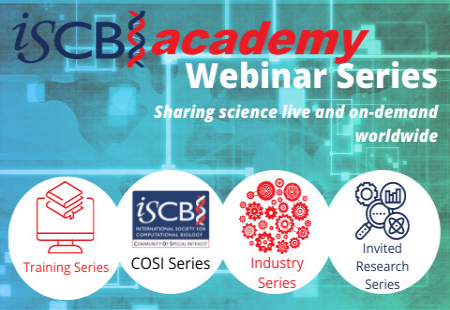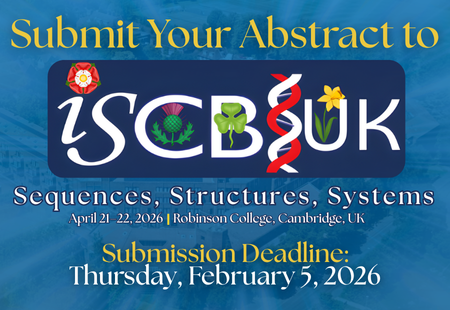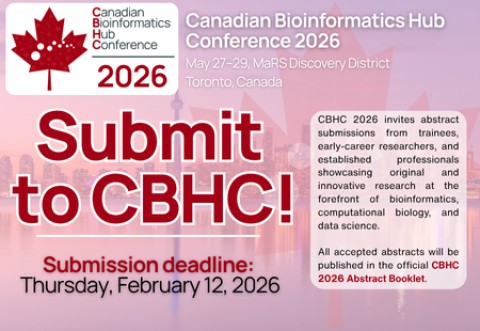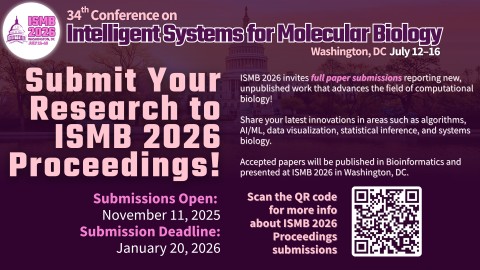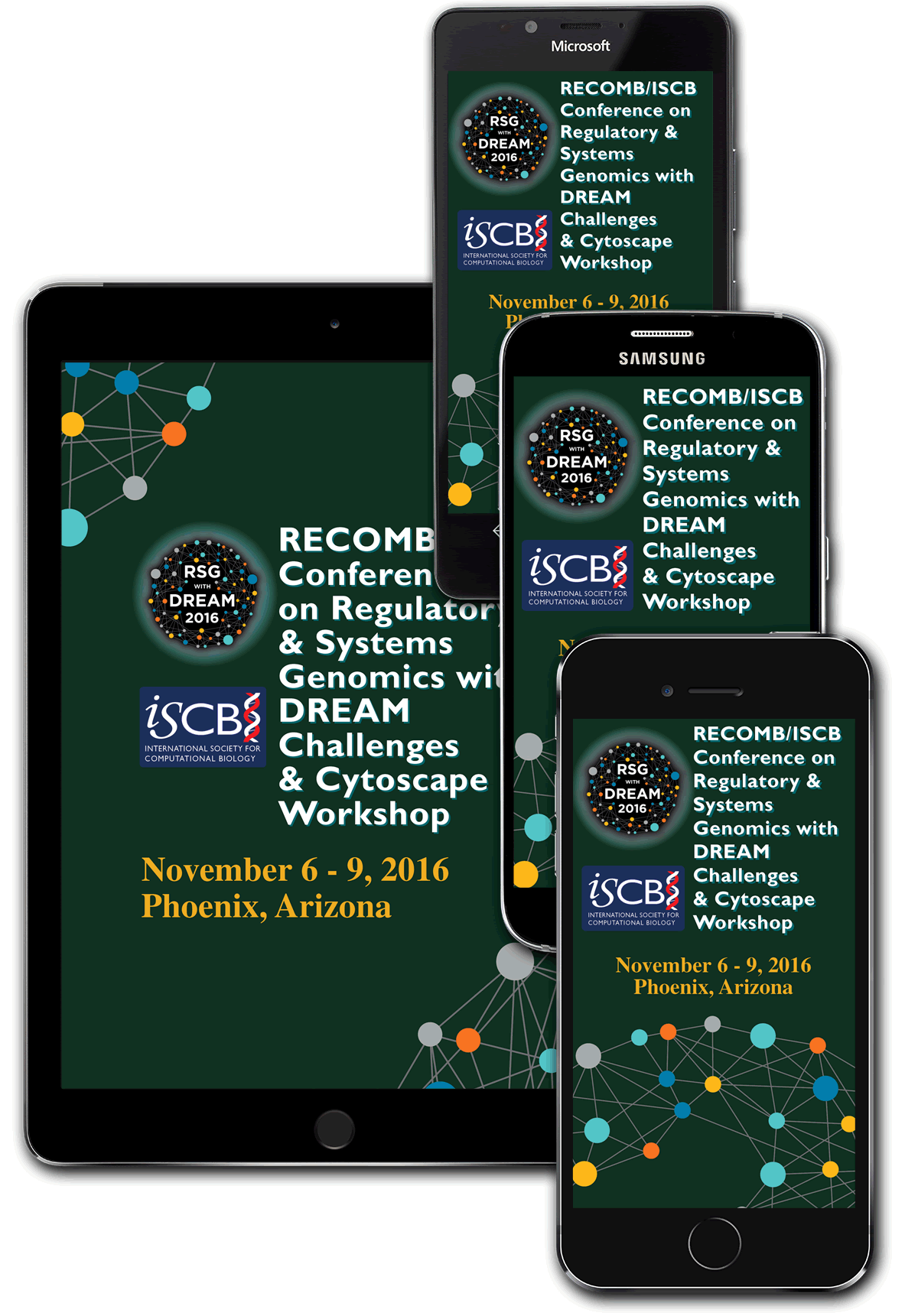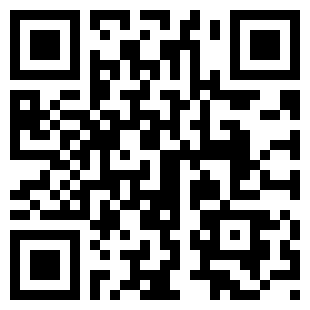KEYNOTE SPEAKERS
| Links within this page: | |||||||
| REGULATORY GENOMICS - Martha L. Bulyk, PhD - Christopher Burge, PhD |
SYSTEMS BIOLOGY - Réka Albert, PhD - Jill P. Mesirov, PhD - Gordon B. Mills, MD, Ph.D - Nicholas J. Schork, Ph.D. |
DREAM CHALLENGES - Isaac Kohane, MD, PhD - Zhiping Weng, PhD |
|||||
REGULATORY GENOMICS
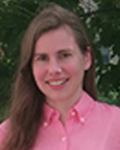 Martha L. Bulyk, PhD
Martha L. Bulyk, PhD
Professor of Medicine
Professor of Pathology
Brigham & Women's Hospital and Harvard Medical School
Boston, Massachusetts, USA
> Click here for biography <
Genetic variation in human transcription factors
Sequencing of exomes and genomes has revealed abundant genetic variation affecting the coding sequences of human transcription factors (TFs), but the consequences of such variation remain largely unexplored. We developed a computational, structure-based approach to evaluate TF variants for their impact on DNA-binding activity and used universal protein binding microarrays to assay sequence-specific DNA-binding activity across 41 reference and 117 variant alleles found in individuals of diverse ancestries and families with Mendelian diseases. We found 77 variants in 28 genes that affect DNA-binding affinity or specificity and identified thousands of rare alleles likely to alter the DNA-binding activity of human sequence-specific TFs. Our results suggest that most individuals have unique repertoires of TF DNA-binding activities, which may contribute to phenotypic variation.
top
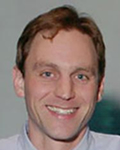 Christopher Burge, PhD
Christopher Burge, PhD
Professor of Biology and Biological Engineering
Director, Computational and Systems Biology PhD Program
Whitehead, Massachusetts Institute of Technology
Cambridge, Massachusetts, USA
> Click here for biography <
Protein-RNA interactions and function of alternative 3' UTRs
Many RNA binding proteins (RBPs) bind specific RNA sequence motifs, but only a small fraction of RBP motif instances are occupied in vivo. To determine what additional contextual features discriminate between bound and unbound motifs, we are using in vitro binding of RBPs of interest to large pools of array-synthesized oligonucleotides. Using ~110 nt oligos representing natural RNA sequences, we find that the subset of motif instances bound in vitro correlates with in vivo binding and developmental regulation, and multiple lines of evidence implicate RNA secondary structure in modulating binding. I will also discuss recent work showing that mRNA isoforms that contain gene-distal alternative last exons are preferentially localized to neurites.
top
SYSTEMS BIOLOGY
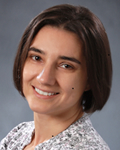 Réka Albert, PhD
Réka Albert, PhD
Distinguished Professor of Physics and Biology
Pennsylvania State University,
State College, Pennsylvania, USA
> Click here for biography <
Control and Damage Mitigation in Regulatory Networks
top
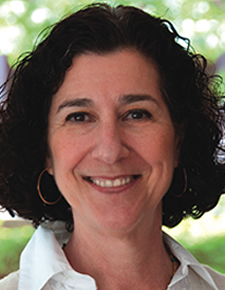 Jill P. Mesirov, Ph.D.
Jill P. Mesirov, Ph.D.
Associate Vice Chancellor for Computational Health Sciences
Professor, Department of Medicine
University of California, San Diego
USA
Signature and Integrative Computational Approaches to Genomic Medicine
top
 Gordon B. Mills, MD, PhD
Gordon B. Mills, MD, PhD
Department Chair, Department of Systems Biology
Division of Basic Science Research
The University of Texas MD Anderson Cancer Center, Houston, TX
Professor of Medicine and Immunology
MD Anderson Cancer Center
Houston, TX, USA
> Click here for biography <
Systems approach to rational drug combinations
top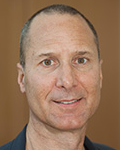 Nicholas J. Schork, Ph.D.
Nicholas J. Schork, Ph.D.
Director of Bioinformatics and Biostatistics
Scripps Translational Science Institute
Professor, Department of Molecular & Experimental Medicine
The Scripps Research Institute
Professor of Psychiatry and Biostatistics (adjunct)
University of California, San Diego, USA
> Click here for biography <
Heterogeneity in Large-Scale Biomedical Data Sets
There is a great deal of hype surrounding the concept of ‘Big Data,’ especially in the biomedical sciences. The belief that collecting massive amounts of data and mining it appropriately could lead to unprecedented basic biomedical insights and suggest ways of predicting health outcomes in individual patients is motivated by many successes large-scale data collections have had in the recent past (e.g., the 1000 Genomes project, The Cancer Genome Atlas (TCGA), etc.). However, there are number of issues plaguing the analysis of large data sets, not the least of which concern the reliability and harmonization of the data. One important and often overlooked issue concerns overt if not cryptic heterogeneity in the data. In this talk, discussions of both the motivation to accommodate heterogeneity and methods for achieving it are provided. In addition, examples settings in which heterogeneity is the rule rather than the exception are provided that range from single cell analyses, characterizing the properties of induced pluripotent stem cell (iPSc), cell line-based drug screens, the ‘rewiring’ of tumorigenic networks, and accommodating and exploiting heterogeneity in tests of health interventions via emerging clinical trials designs.
top
DREAM CHALLENGES
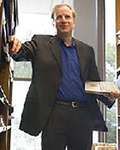 Isaac Kohane, MD, PhD
Isaac Kohane, MD, PhD
Lawrence J. Henderson Professor of Pediatrics
Boston Childrens Hospital, Harvard Medical School
Cambridge, Massachusetts, USA
Fake and True Names of Disease: Phenome and/or Genome?
top
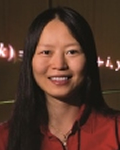 Zhiping Weng, PhD
Zhiping Weng, PhD
Director, Program in Bioinformatics and Integrative Biology
University of Massachusetts Medical School
Worcester, Massachusetts, USA
> Click here for biography <
Expanding the ENCODE Encyclopedia: Applications for Annotating Non-coding Variants
Jill Moore, Michael Purcaro, Henry Pratt, Arjan van der Velde, Tyler Borrman, and Zhiping Weng
The Encyclopedia of DNA Elements (ENCODE) Consortium has generated hundreds of high throughput genomic datasets with the goal of cataloging functional elements in the human genome. Our goal was to integrate these complex data types to annotate regulatory elements and their target genes. We then used these annotations to functionally characterize non-coding variants associated with human disease.
We began by developing an unsupervised method for predicting enhancer-like regions, which we evaluated using experimentally validated data from transgenic mouse assays. Using only H3K27ac ChIP-seq and DNase-seq data, our method shows high concordance with more complex genome segmentation methods with the advantage that it can be applied across many more cell and tissue types. Our next step was to then connect these predicted enhancers to their target genes. In order to compare different methods, we created a novel benchmark dataset by integrating eQTLs, ChIA-PET clusters and Hi-C links. We developed a Random Forest (RF) based approach using features such as the distance between the enhancer and gene, DNase and H3K27ac signals, and gene expression. With this model, we saw a dramatic increase in performance compared to methods based only on signal correlation. We then applied both methods to over 100 cell and tissues types across human and mouse and created a visualization tool (http://zlab-annotations.umassmed.edu/) where users can query and download regions of interest.
Using this resource, we then sought to annotate non-coding variants in the NHGRI-EBI GWAS catalog. While there were many cases of variants residing in enhancers that targeted only the nearest gene, there were some interesting exceptions. In particular, rs1250564, which is in high LD with SNPs associated with Multiple Sclerosis (MS), resides in an enhancer-like region within the ZMIZ1 gene. In lymphoblastoid cells, whose regulatory regions were previously determined to be enriched in MS variants, this enhancer targets both ZMIZ1 and PPIF. PPIF encodes a protein that is part of the mitochondrial permeability transition pore which supports the hypothesis that mitochondrial dysfunction may play a role in the the onset of MS. This finding demonstrates that by using the ENCODE Encyclopedia, researchers can determine target genes of non-coding variants and gain a better understanding of the underlying disease.
top
BIOGRAPHIES (in alphabetical order)
Réka Albert, PhD
Prof. Réka Albert received her Ph.D. in Physics from the University of Notre Dame (2001), working with Prof. Albert-László Barabási, then did postdoctoral research in mathematical biology at the University of Minnesota, working with Prof. Hans G. Othmer. She joined the Pennsylvania State University in 2003, where she currently is a Distinguished Professor of Physics with adjunct appointments in the Department of Biology, the College of Information Sciences and Technology, and the Huck Institute of the Life Sciences. Prof. Albert is a theoretical/computational scientist who works on predictive modeling of biological regulatory networks at multiple levels of organization. Dr. Albert's pioneering publications on the structural heterogeneities of complex networks had a large impact on the field, reflected in their identification as "Fast breaking paper" and "High impact paper" by Thomson Reuters. Prof. Albert is a fellow of the American Physical Society and an external member of the Hungarian Academy of Sciences. She was a recipient of an NSF Career Award (2007), the Maria Goeppert-Mayer award (2011), and the Distinguished Graduate Alumna Award of the University of Notre Dame (2016). Her service to the profession includes serving on the editorial board of the journals Physical Review E, IET Systems Biology, Biophysical Journal, SIAM Journal of Applied Dynamical Systems, and Bulletin of Mathematical Biology, on the advisory board of the Mathematical Biosciences Institute, and as peer reviewer for more than 35 journals.
top
Martha L. Bulyk, Ph.D.
Dr. Bulyk received dual undergraduate degrees in Biology and in Mathematics from MIT in 1993. She received her Ph.D. in Biophysics in 2001 from Harvard University, where she worked in Dr. George Church’s group. Shortly thereafter, she began as an Assistant Professor at Harvard. Currently she is a Professor in the Division of Genetics in the Department of Medicine, and also a Professor ofPathology, at Brigham & Women's Hospital and Harvard Medical School. She is also an Associate Member of the Broad Institute of MIT and Harvard, and an Associate Member of the Dana Farber Cancer Institute’s Center for Cancer Systems Biology.
In 2005 Dr. Bulyk was named one of the TR35, MIT Technology Review’s annual competition to select the top 35 young innovators under the age of 35, and in 2007 she was named in Genome Technology’s annual selection of “Tomorrow’s PIs”. She has served on numerous grant review panels and journal editorial boards, and is a Member of Faculty of 1000. Dr. Bulyk has published over 90 scientific articles and book chapters, and has presented over 160 invited seminars. Her group is currently focused on studies of transcription factors and DNA regulatory elements, using a variety of experimental and computational approaches , including new technologies they have developed.
top
Christopher Burge, PhD
Dr. Burge completed BS and PhD degrees at Stanford, where he worked in Dr. Samuel Karlin’s research group, and did postdoctoral work at MIT in Dr. Phillip Sharp’s lab from 1997-1999. He is currently Professor of Biology and Biological Engineering at MIT and Director of MIT’s Computational and Systems Biology PhD Program. He is also an extramural member of the Koch Institute for Integrative Cancer Research and an Associate Member of the Broad Institute of MIT and Harvard. He was awarded the Overton Prize for Computational Biology in 2001, the Technology Review Young Innovator’s Award in 2002, a Searle Scholar Award in 2003 and the Schering-Plough Research Institute Award in 2007 and is the author of over 100 publications relating to post-transcriptional gene regulation, molecular evolution and computational genomics. He developed the GENSCAN algorithm for de novo gene prediction from genomic sequence during his PhD and studied RNA splicing and molecular evolution during his postdoc. His laboratory has developed a number of computational methods for understanding gene regulation, including RESCUE-ESE for identification of splicing regulatory elements, TargetScan for microRNA target prediction (with the David Bartel lab), and MISO for inference of exon and isoform abundance from RNA-Seq data (with Edo Airoldi). His lab’s current research focuses on understanding the functions of RNA-binding proteins in health and disease. The lab uses high-throughput and targeted molecular biological approaches in combination with computational methods.
top
Gordon B. Mills, MD, PhD
Gordon B. Mills, MD, PhD, was recruited to The University of Texas MD Anderson Cancer Center in 1994, where he holds the rank of Professor with joint appointments in Systems Biology, Breast Medical Oncology and Immunology; serves as chairman of the Department of Systems Biology; and holds highest University of Texas endowed award: the Wiess Distinguished University Chair in Cancer Medicine. Dr. Mills founded the Department of Systems Biology at the MD Anderson Cancer Center, which was the first Cancer Systems Biology Department and the second Systems Biology Department in the US. Dr. Mills is Director of the Kleberg Center for Molecular Markers; co Director of the Sheikh Zayed bin Sultan Al Nahyan Institute for Personalized Cancer Therapy and the Women’s Cancer Moonshot. The Center and the Institute are responsible for developing and implementing personalized molecular medicine at MDACC. The Women’s Cancer Moonshot is responsible for transforming outcomes for the patients with aggressive breast and ovarian cancer Dr. Mills currently serves as principal investigator or project investigator on many national peer review grants including NIH/NCI SPOREs, Stand up to Cancer, U24, U54 and PPGs, Department of Defense and Komen Foundation grants, and is a collaborator on multiple other national grants. Dr. Mills has published more than 700 papers on the molecular analysis of cancer; is listed as one of the most cited and influential scientists, has an H index over 100, holds more than 20 patents related to novel technologies and molecular markers and has co-founded an early diagnostics company. He currently sits on the scientific advisory boards of multiple companies and venture capital groups. He has recently been awarded the Komen Brinker award for Scientific Excellence, the Stand up to Cancer Laura Ziskin Prize for mentoring and the Finneran Family Prize in Translational Research.
top
Nicholas J. Schork, PhD
Nicholas J. Schork is a Distinguished Professor of Quantitative Medicine at the Translational Genomics Research Institute (TGen) in Phoenix, AZ, Director of Human Biology at the J. Craig Venter Institute in La Jolla, CA and Adjunct Professor of Psychiatry and Biostatistics at the University of California, San Diego (UCSD). Prior to his current appointments Dr. Schork held faculty positions at The Scripps Research Institute, UCSD and Case Western Reserve University. He has published over 500 articles in the area of quantitative biomedical research. These articles focus on both analytical methods development and applications. He has also mentored over 75 trainees, has directed the quantitative components of a number of larger consortia, such as the NIA-funded Longevity Consortium, holds 7 patents, and his been involved as a founder or advisor to over 10 start-up companies.
top
Zhiping Weng, PhD
Zhiping Weng received her B.S. in Electrical Engineering from University of Science and Technology of China in 1992 and Ph.D. in Biomedical Engineering from Boston University in 1997. Dr. Weng is a full professor and Director of Program in Bioinformatics and Integrative Biology at University of Massachusetts Medical School. She develops and applies computational methods to study biological problems, e.g., gene regulation by transcriptional and post-transcriptional (small silencing RNA) mechanisms and protein-protein interaction. Dr. Weng is a key member of the ENCODE consortium and heads its data analysis center. She is also a member of the data analysis center of the psychENCODE consortium. Her lab performs integrative analysis on the rich genomic, epigenomic, and transcriptomic data generated by the two consortia.

